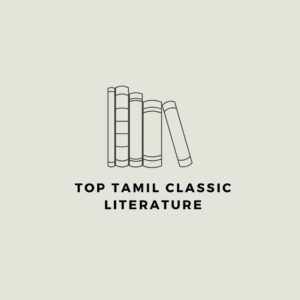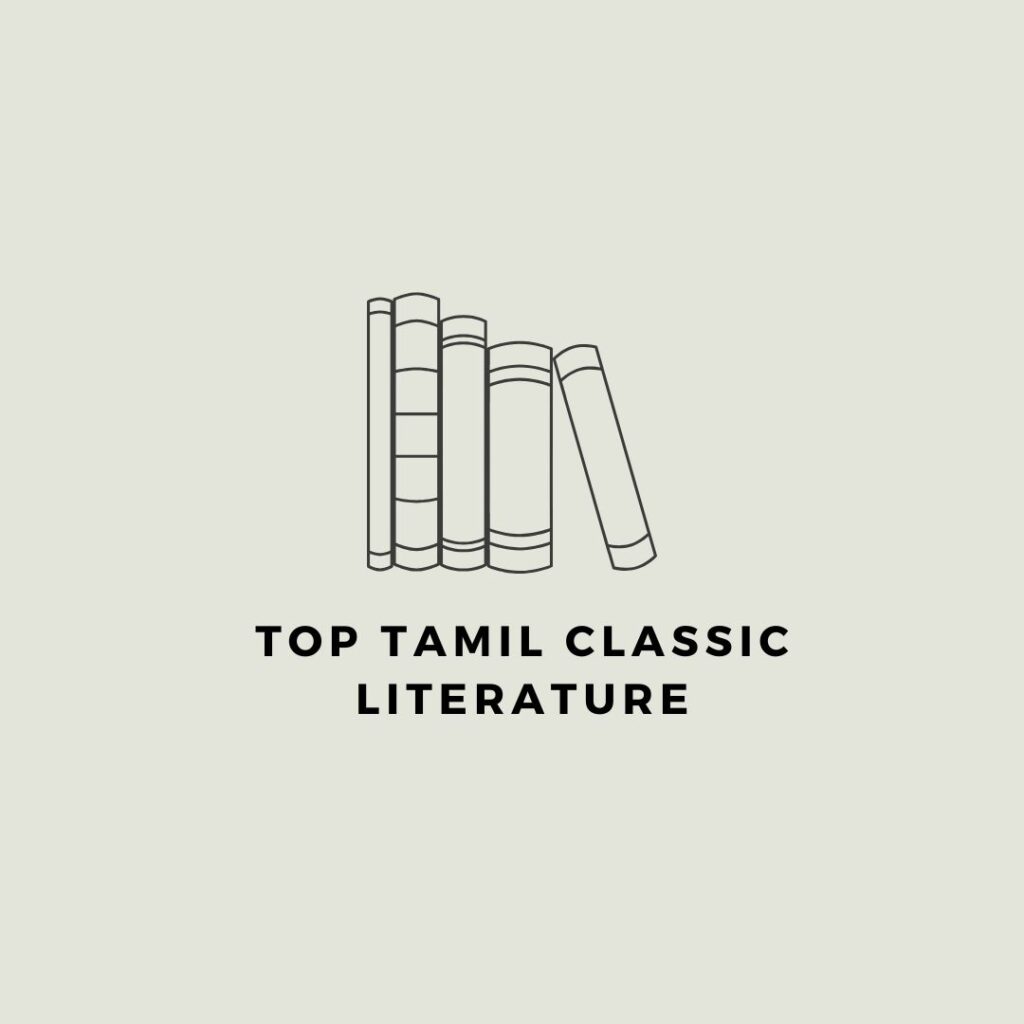Tamil Classic Literature
Tamil literature, one of the oldest and most revered literary traditions in the world, boasts a history that spans over two millennia. This blog post will explore the various facets of Tamil classic literature, including its historical context, major works, significant authors, and its enduring impact on culture and society.

Table of Contents
The Historical Context of Tamil Literature
Tamil literature can be traced back to the Sangam period, which is believed to have lasted from around 300 BCE to 300 CE. This era was marked by the flourishing of poetry and prose that reflected the social, political, and cultural dynamics of ancient Tamil society.
The Sangam Age
The term “Sangam” refers to a series of gatherings of poets and scholars in ancient Tamil Nadu, where they composed and shared their works. The literature produced during this time is known as Sangam literature, which is characterized by its rich themes of love, valor, ethics, and nature.
- Key Features:
- Anthologies: Sangam literature includes several anthologies such as the Ettuthokai (Eight Anthologies) and Pattupattu (Ten Idylls).
- Themes: Common themes include love (Akam), war (Puram), governance, trade, and the human experience.
- Notable Works: Some of the most celebrated works from this period include Tolkappiyam, a treatise on grammar and poetics; Silappathikaram, an epic poem; and Manimekalai, another significant epic.
Major Works of Tamil Classic Literature
Tamil classic literature encompasses a wide range of genres, including poetry, drama, and prose. Below are some of the most significant works that have shaped this literary tradition.
1. Tolkappiyam
Tolkappiyam is one of the earliest extant works in Tamil literature, attributed to the grammarian Tolkappiyar. It serves as a comprehensive guide to Tamil grammar, phonetics, rhetoric, and poetics.
- Structure: The text is divided into three sections: Ezhuttu (letters), Col (words), and Porul (subject matter).
- Significance: Tolkappiyam not only codifies the Tamil language but also provides insights into the socio-political conditions of ancient Tamil society.
2. Silappathikaram
Written by Elango Adigal, Silappathikaram is one of the five great epics of Tamil literature. The story revolves around Kannagi, a woman who seeks justice for her wronged husband.
- Themes: The epic explores themes of love, fidelity, justice, and societal norms.
- Cultural Impact: Silappathikaram has had a profound influence on Tamil culture and has inspired numerous adaptations in various art forms.
3. Manimekalai
Another significant epic is Manimekalai, attributed to Sittalai Sattanar. It continues the story of Kannagi’s legacy through her daughter Manimekalai.
- Philosophical Elements: The text incorporates Buddhist philosophy and emphasizes moral values.
- Narrative Style: Manimekalai blends narrative prose with poetic verses, showcasing the richness of Tamil literary expression.
4. Tirukkural
Authored by Thiruvalluvar, the Tirukkural is often regarded as a masterpiece of Tamil literature. It consists of 1,330 couplets that address ethics, politics, and love.
- Structure: The work is divided into three sections: Aram (virtue), Porul (wealth), and Kamam (love).
- Universal Appeal: The teachings in Tirukkural transcend cultural boundaries, making it relevant across different societies.
Key Themes in Tamil Classic Literature
Tamil classic literature encompasses various themes that reflect the values and beliefs of ancient Tamil society:
- Love and Relationships: Many poems explore romantic relationships through the lens of passion and longing.
- Heroism and Valor: Celebrations of bravery in battle are common, often glorifying warriors and their deeds.
- Ethics and Morality: Works like Tirukkural emphasize moral conduct and ethical governance.
- Nature: Nature is frequently depicted as a source of inspiration and beauty in poetry.
Influential Authors in Tamil Classic Literature
Several authors have made significant contributions to Tamil classic literature:
- Thiruvalluvar: Renowned for his philosophical insights in Tirukkural.
- Elango Adigal: Celebrated for his epic Silappathikaram.
- Sittalai Sattanar: Known for Manimekalai’s blend of narrative and philosophy.
- Kamban: A later poet who adapted the Ramayana into Tamil with Kambaramayanam.
The Legacy of Tamil Classic Literature
The impact of Tamil classic literature extends beyond its historical context:
- Cultural Identity: These works have shaped Tamil cultural identity and continue to influence contemporary literature.
- Language Development: Classical texts have contributed to the evolution of the Tamil language over centuries.
- Global Recognition: Translations of these classics have introduced Tamil literature to international audiences, fostering cross-cultural appreciation.
Modern Relevance
While rooted in history, Tamil classic literature remains relevant today:
- Educational Value: These texts are studied in schools and universities for their linguistic beauty and philosophical depth.
- Literary Adaptations: Many modern writers draw inspiration from classical themes and narratives to address contemporary issues.
- Cultural Festivals: Events celebrating Tamil literature often feature discussions on classic works, promoting awareness among younger generations.
Frequently Asked Questions (FAQs)
1. What is Tamil classic literature?
Tamil classic literature refers to the body of literary works produced in the Tamil language that have historical significance and are considered foundational to Tamil culture. This includes poetry, epics, prose, and philosophical texts that date back to ancient times, particularly from the Sangam period (300 BCE to 300 CE) and beyond.
2. What are some notable works of Tamil classic literature?
Some of the most significant works in Tamil classic literature include:
- Tolkappiyam: An ancient treatise on Tamil grammar and poetics.
- Silappathikaram: An epic poem about love, justice, and societal norms.
- Manimekalai: A continuation of the story from Silappathikaram, incorporating Buddhist philosophy.
- Tirukkural: A collection of couplets addressing ethics, politics, and love by Thiruvalluvar.
3. Who are the key authors in Tamil classic literature?
Notable authors include:
- Thiruvalluvar: Author of Tirukkural, revered for its moral teachings.
- Elango Adigal: Known for the epic Silappathikaram.
- Sittalai Sattanar: Recognized for Manimekalai.
- Kamban: Famous for his adaptation of the Ramayana into Tamil with Kambaramayanam.
4. What themes are commonly found in Tamil classic literature?
Common themes in Tamil classic literature include:
- Love and Relationships: Explored through romantic poetry and narratives.
- Heroism and Valor: Celebrating bravery in battle and noble deeds.
- Ethics and Morality: Emphasizing moral conduct and virtuous living.
- Nature: Often depicted as a source of beauty and inspiration.
5. How has Tamil classic literature influenced modern Tamil literature?
Tamil classic literature has laid the foundation for modern Tamil writing by:
- Providing linguistic and stylistic models for contemporary authors.
- Inspiring themes and narratives that address current social issues.
- Serving as a source of cultural identity and pride among Tamils.
6. Why is Tolkappiyam significant in Tamil literature?
Tolkappiyam is significant because it is one of the earliest works on Tamil grammar and poetics. It not only codifies the rules of the language but also reflects the cultural and social dynamics of ancient Tamil society, making it a critical resource for understanding both linguistics and history.
7. How does Silappathikaram reflect societal values?
Silappathikaram reflects societal values through its exploration of themes such as justice, fidelity, and the consequences of societal norms. The protagonist, Kannagi, embodies virtue and righteousness, challenging injustices in her society, which resonates with moral teachings prevalent during its time.
8. Are there modern adaptations of Tamil classic literature?
Yes, many modern adaptations exist across various media, including:
- Films based on classics like Silappathikaram and Kambaramayanam.
- Novels that reinterpret classical themes for contemporary audiences.
- Stage plays and dance performances that bring these stories to life.
9. How can I access Tamil classic literature today?
Tamil classic literature can be accessed through:
- Libraries that specialize in regional literature.
- Online platforms offering e-books or translations of classical texts.
- Literary festivals or academic institutions that host discussions or courses on Tamil literature.
10. What is the relevance of studying Tamil classic literature today?
Studying Tamil classic literature is relevant today because it:
- Provides insights into historical cultural practices and societal norms.
- Enhances understanding of language development over centuries.
- Fosters appreciation for literary artistry and philosophical thought that transcends time.
Conclusion
Tamil classic literature represents a treasure trove of knowledge, culture, and artistic expression that has stood the test of time. From its origins in the Sangam period to its lasting influence on modern society, these literary works continue to inspire readers around the world. By exploring these classics, we not only appreciate their artistic merit but also gain insights into the rich tapestry of human experience encapsulated within their verses.
Discover marketing services, interviews & publishing tools at SharingStories.


